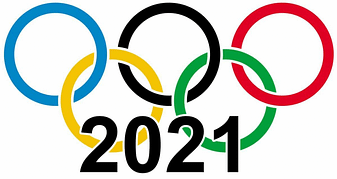Cork Unitarian Church Relocation Fund
Cork Unitarian Church Relocation Fund Read More »

Christmas shopping among crowded small stalls of merchants and craftspeople is a pleasant nostalgic memory for many Cork residents. That is precisely the image that many secular Cork residents have about the Unitarian Church as they talk favourably about shopping at the vendor market at Christmas time.
That local shopping tradition was interrupted last year by the COVID-19 pandemic. The pandemic is not over and the church has had some time to deliberate on how much of its resources and public image should be devoted to gift buying commerce during the Christmas season.
The story of Jesus expelling the merchants and money changes from the temple is found in all four Gospel accounts and certainly comes to mind. The Unitarian Church is a sacred place, but we Unitarians do not make dualistic distinctions between the sacred and the every day. We are fine with facilitating Christmas traditions of gift giving and holiday cheer, be they religious or secular. To the extent that some secularisation of Christmas promotes “peace on earth – goodwill to all” – we are all for it. Or to paraphrase Matthew 12:1–8, Christmas is made for people, not the other way around. So, the balance for our church is one of proportions and messaging. Commercial activities are important fundraisers for a small church like ours, but they need to be viewed as much more than pure monetary activities.
The net result is that “the market” as it formerly existed is not envisioned as part of the Unitarian Church’s space planing going forward. Will the Unitarian Church still be open to allowing appropriate commercial vendors use the church’s centre city location for events? Yes, but with more balance to the needs of the church’s primary mission, particularly during the holiday season.
Seasons greetings,
Your Church Committee
Has the Grinch Stolen Christmas? Read More »

As I write the Tokyo Olympics are entering there final week. The absence of crowds has made this a very surreal event, but it has not diminished from the extraordinary performances that every Olympics brings. We have witnessed the smiles and the tears of those receiving medals, have all been lifted by the four medals won for Ireland ( so far!) and we have witnessed the disappointment of those whose turn it wasn’t. The Olympics remind us of two very important lessons in life. First, success, whatever that be for each of us, doesn’t just happen. Athletes don’t just turn up and win a medal. It takes hard work, persistence, determination and a lot of sacrifice and courage. But more than that, every journey to success begins with a dream, never give up on yours.
Blessings – Rev Mike
We also have to send the deepest thanks to our Hon. Life Chair, Brian Cluer, who under the rules that govern our denomination has stepped away from his formal work with the committee, having served the maximum time before a break must be taken. Brian has been a guiding light and his dedication has always been total. He will remain Hon. Life Chair and from time to time, when needed, I am sure we will be knocking on his door asking advice! Paying tribute to Brian, the minister, Mike O’ Sullivan said: Brian has been a constant voice of support in the ever-evolving journey of our church. Since my installation as minister, he has been there for me, always with a wise word or two, always with a smile. He is one of life’s true gentleman, our debt, my debt to him is enormous.
Management Committee: Brian Cluer Read More »
The Unitarian Church Cork is pleased to announce the addition of Pearse O’Donoghue to the Church Committee which along with the minister is responsible for the day-to-day temporal running of the church and the building. Pearse is well known to those who attend the churches services, be it in person or on-line, as the man who provides with wonderful and often inspiring live music on Sunday mornings. Pearse is well known in Cork, primarily as an actor but also as a very talented musician. Pearse will bring a fresh creative thinking to the committee’s work, and is a welcome addition to our team.
Management Committee: Pearse O’Donoghue Read More »

Cork Unitarian Church has selected iDonate as our new payment processing service. iDonate is a Galway-based company that specialises in payment processing for Irish non-profits. iDonate supports all of the major on-line payment methods (e.g. Credit Cards, Debit Cards, PayPal, Apple Pay & Google Pay). It also provides options for one-time and recurring payments. iDonate offers our supporters more options for giving and stretches the value of their contributions by providing them with an easy option for participating in the Irish government’s Tax Relief Scheme. It also provides the church management committee with improved flexibility in fundraising and more precise reporting. Welcome iDonate!
Welcome to iDonate Read More »
Friday 28-May night is our last Night prayer, it has been running now for 14 months. Our deepest thanks go out to all those from our own and different denominations, including Santa who led Night Prayer for us. They are too many to list here but thanks all.
Most of all to all of you who watched regularly or just popped in from time to time, for all involved, each one of you made it worthwhile.
Friday Night Prayer Series Ends Read More »